Personal reflections from Elisabeth Stern, of the Swiss Senior Women for Climate Protection
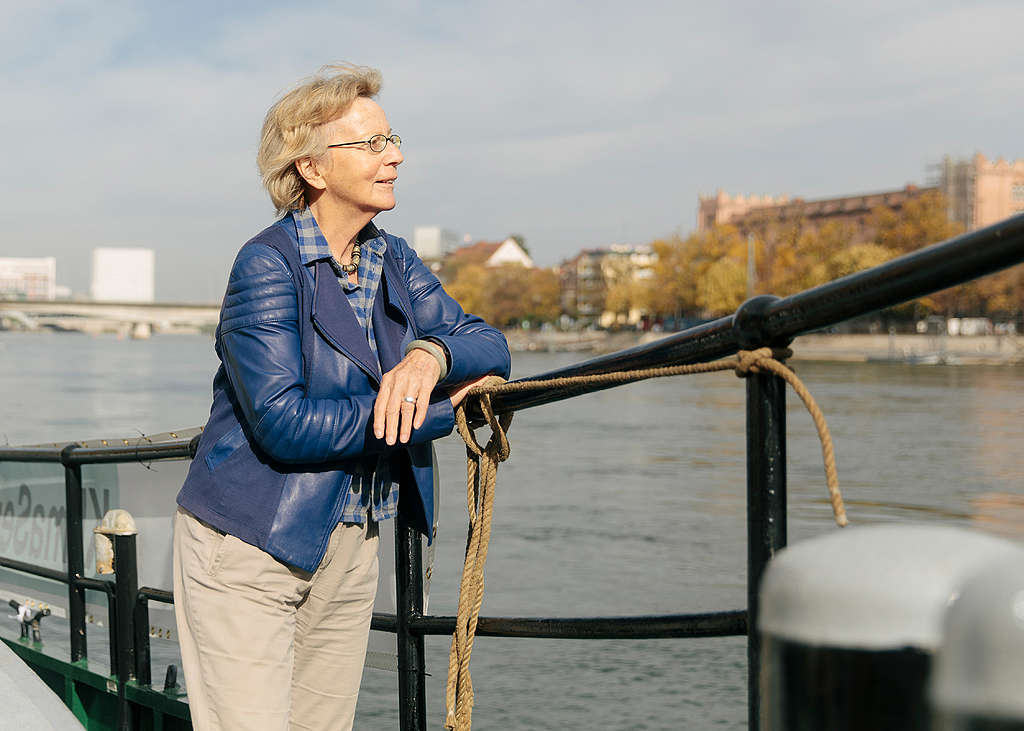
Let us ask ourselves a question. In our complaint to the European Court of Human Rights, are we Senior Women for Climate Protection Switzerland really primarily concerned with our right to life?
Let me admit at the outset, the answer is yes. We don’t want to die prematurely, just because we as a society – including politicians and companies – haven’t managed to come up with a sensible climate policy, or at least not one that is good enough.
So are we simply being selfish by suing for our human right to life and health? We old women, of all people, who statistically will be gone from this planet in ten years anyway?
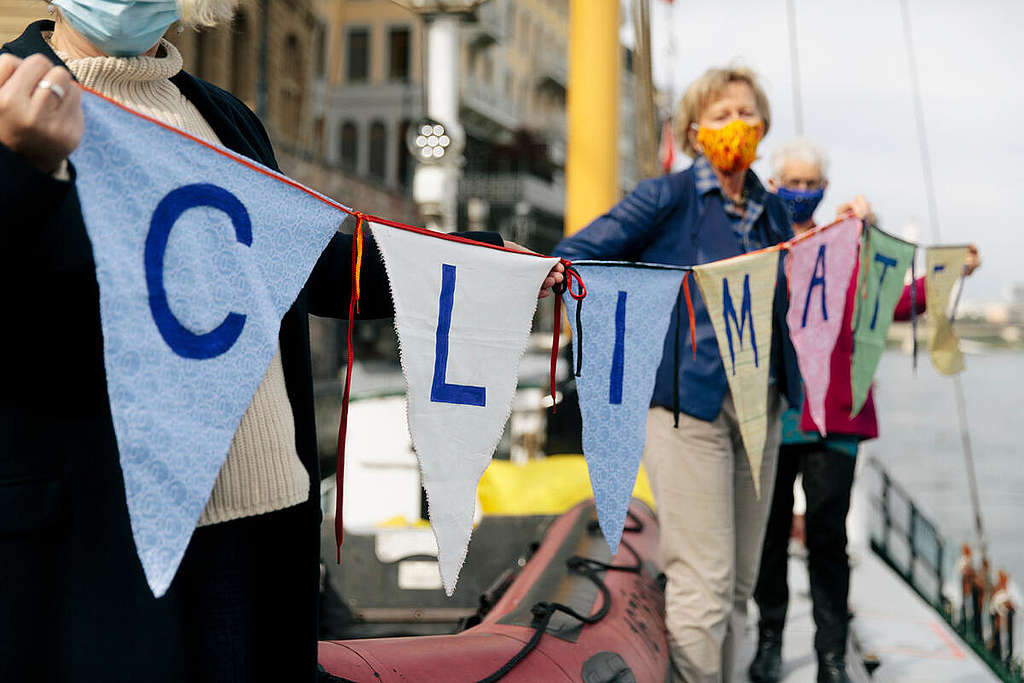
As senior women, we are ‘vulnerable’ in a double sense. On one hand, we are suffering from the direct effects of our changing climate such as heatwaves, and on the other hand, we are suffering from our public visibility because of our climate complaint. We take the rap, so to speak, and allow ourselves to be insulted and denigrated. Active old women trigger both: great admiration and contempt (including hate mails with full name of sender!).
And yet, we hold our heads up for everyone currently affected by the climate emergency. Because to sue one’s own government is no “Sunday picnic” and can only be done by those who can prove that they are particularly affected. And in this process, we have come a long way.
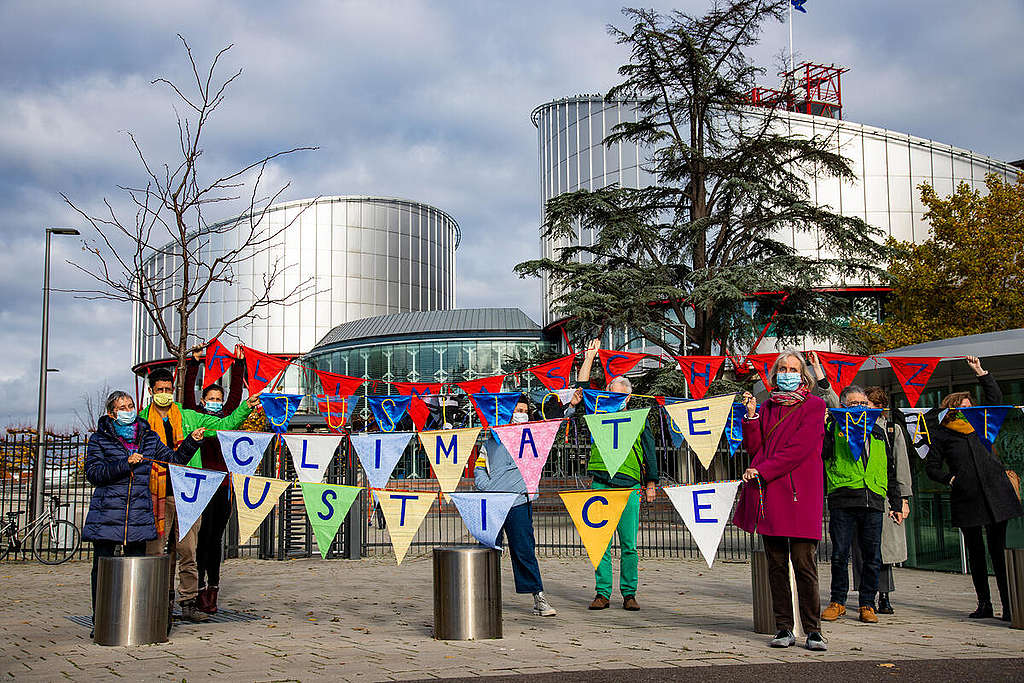
Should we win in the court in Strasbourg, a better climate policy will help less the lives of senior people than those of our children and grandchildren. And admittedly, it was always important to us to do something that would also have a positive effect on our younger generations. They are the future, not us. If, because of our particular vulnerability, we can now still contribute to the conditions needed for an environment in which our children and grandchildren can thrive, that simply makes me happy.
I do not only identify myself as an individual, but also with my descendants, with future generations, even with the planet. I have known this since I saw the photograph of the earth from space. Earthrise was taken in 1968, but the picture didn’t strike me until ten years later: with immense force it blew up and expanded my perspective.
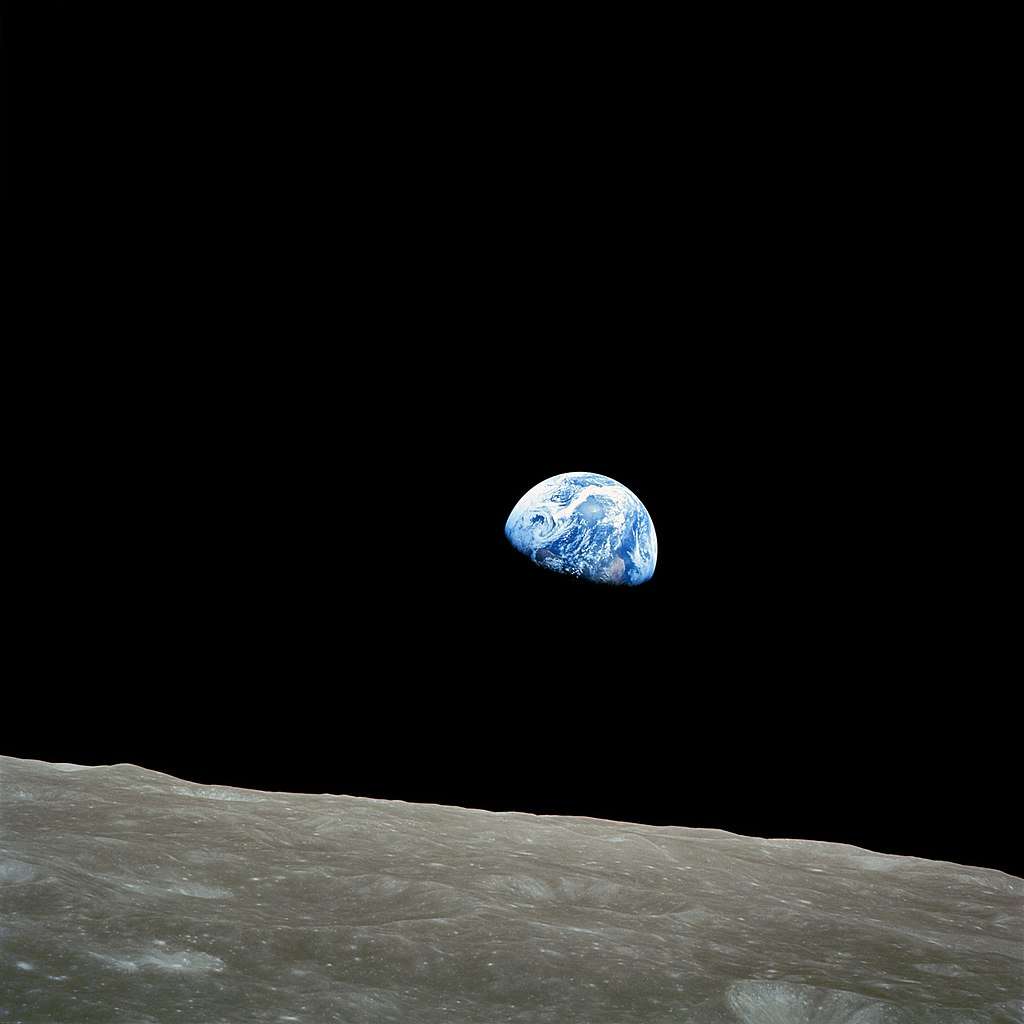
I worry about the young ones. Sometimes I am afraid for them in two ways. They see themselves as the “last generation”. Not as the future! What must it be like to feel like the “last”? They are not responsible for the destruction, but they have to bear the brunt of the crisis, live through it, and somehow survive. The worst thing about this for me personally: I will not be able to protect them. As a climate senior, my primary concern is to keep our earth livable for future generations.
(I make no distinction in my concern between my own children and the children of others).
Climate action across generations
It infuriates me that young activists are condemned even for non-violent climate action, but those who cheer on the crisis, continue to fund fossil fuel extraction and rake in obscene profits are rewarded. Any condemnation is a slap in the face and mocks any sense of justice in the world. Now and then, the young can let off some steam, and are even allowed to read the riot act to the political and economic elite at the World Economic Forum. Then, for the moment, they listen – the next year we learn that investments and subsidies for fossil energy have continued. How I feel there together with the young people – lied to and fooled? Their future is being sold every day.
No wonder that young people in Switzerland see their own future in an increasingly gloomy light, according to a new study. They worry about the climate (along with war) and wonder whether people – including themselves – have enough time to adapt to climate change. They know nature will eventually recover, but where does that leave people, where does that leave them? They ask me questions like, “Can you give me tips on how to get my mother and grandmother to take action, too?” This is what young students recently asked me, almost in desperation.
Because it is important to me, I repeat: it is not our own survival and health that drives me and many of us climate seniors. In the legal process, we are only fighting for our human rights. At the same time, it is important to us that this fight also benefits younger and future generations. The great concern for the future of our children and grandchildren is an important, undeniable motivation for my commitment.
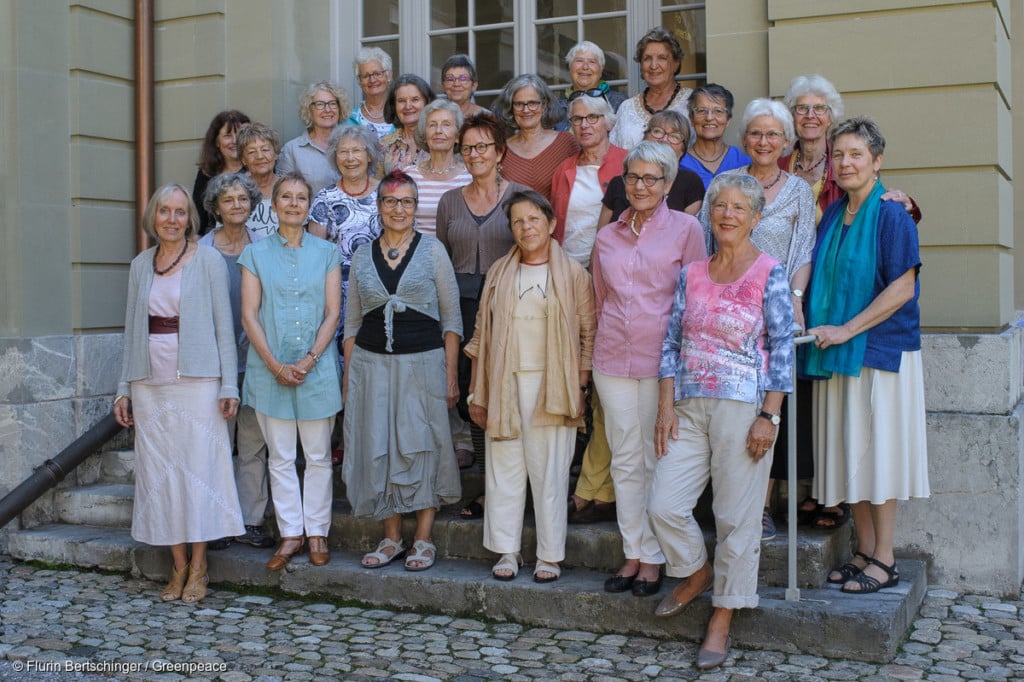
Mine is a commitment that began in 1977 and will only come to an end when I am in the ground. My commitment began because of the shocking figures on children dying of hunger every day, then came the peace movement, the environmental movement, the climate movement, and now, the KlimaSeniorinnen.
We’ll see you in court
Fortunately, there is climate litigation as a tool to defend oneself against states and companies who are refusing to take their climate responsibilities seriously.
It has even become possible to sue because the freedom rights of future generations are being restricted and threatened. This is a completely new construct. Allowing emissions today is an interference with the freedom rights of future generations, the German Constitutional Court has written.
Are we older women victims? Yes, in the sense of being personally affected and at increased health risk from increasing temperatures.
But we are also highly competent agents of change. Because our climate complaint for the first time puts the European Court of Human Rights in the situation to comment on the climate protection measures of a member state. And on the question of whether climate action to protect citizens is a fundamental human right.
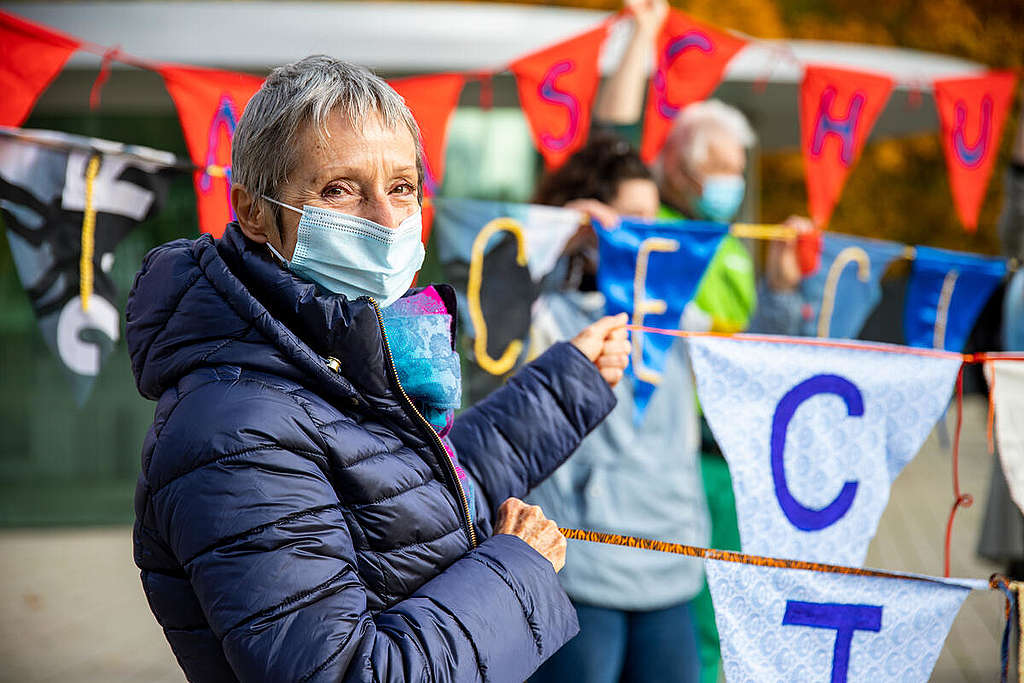
It is our thoughts, our visions that shape the world, shape the future. It took 14 billion years to get us here, you and I are the result of this. Most probably, evolution is not a third arm or leg in the planning for us, but, most likely, a tremendous growth in consciousness, there is more in store for our brains, perhaps even a quantum leap. The awareness, the consciousness of some people alive today is staggering, I see not just glimpses here and there in people, but of huge possibilities. Yes, it can well be that homo sapiens disappears from this planet. Planet Earth will recover eventually, simply without us. Some people have accepted this outcome, but many others see the chance we have now to create something new, in the sense that transformation is often or always preceded by a crisis. I believe this strongly and I keep up this belief or hope, because it inspires me.
Elisabeth Stern is a retired ethnologist who studied psychology in Zurich and completed an MA and PhD in Cultural Anthropology at the University of California. She worked at the Pestalozzi Foundation Children’s Village for intercultural education. She taught ethnology at the University of Zurich, worked as a research associate at the University of Zimbabwe in Harare and as a Senior Lecturer for intercultural management competence at the University of St. Gallen. She was the co-director of an environmental company for the financing of environmental projects.

More than 2.500 senior went to one of Europe’s highest court to demand Climate Justice
Guest authors work with Greenpeace International to share their personal experiences and perspectives and are responsible for their own content.
